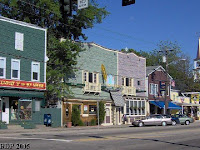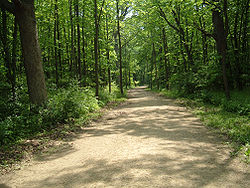 There is no stopping these people. They are brutal and relentless. I dread the encounter. Yet, every day without fail…it happens. I eye the clock knowing full well that the later it gets, the sooner it will occur. I avoid making eye contact. I immerse myself in projects of which I have no interest. I call friends I haven’t spoken to in years, just hoping to avoid the inevitable. But avoidance is futile. No matter what I am doing or where I might be, somehow they manage to seek me out. Whether huddled in my studio, or miles away hiding out in a remote bookstore, come 5:30 p.m. they are magnetically drawn to me. Exhibiting not an ounce of shame, they track me down daily, blatantly accosting me with the abhorrent…“WHAT’S FOR DINNER?”
There is no stopping these people. They are brutal and relentless. I dread the encounter. Yet, every day without fail…it happens. I eye the clock knowing full well that the later it gets, the sooner it will occur. I avoid making eye contact. I immerse myself in projects of which I have no interest. I call friends I haven’t spoken to in years, just hoping to avoid the inevitable. But avoidance is futile. No matter what I am doing or where I might be, somehow they manage to seek me out. Whether huddled in my studio, or miles away hiding out in a remote bookstore, come 5:30 p.m. they are magnetically drawn to me. Exhibiting not an ounce of shame, they track me down daily, blatantly accosting me with the abhorrent…“WHAT’S FOR DINNER?”Geez!! What’s for dinner??? Honestly, I have NO idea. What do YOU think we’re having? Or better yet, what have YOU shopped for and prepared? Do I sound bitter? I’m really not. I’m just tired.
 Truthfully, “What’s for dinner?” is a fine question. And if I had pots of aromatic curries and rice simmering away at 5:30 p.m., I would answer with a “Mother Knows Best” smile, a flip of my hair and a quick curtsy. But most often, at the time when I should be making dinner, I haven’t yet shopped for food, or even figured out what we’re having. The problem is that I find the whole dinner routine annoying. I don’t care how much someone likes to cook, and I am a someone who does, but seriously… EVERYDAY? Come on, people. It’s a pain. I try to be creative with it. I make fancy meals to please my eaters; I’ve gone the other way with simple dishes and silly monikers; “Taco Tuesday”, “Meatloaf Monday”, “Weiner schnitzel Wednesday”. None of this helps. The routine is a killer, and I’m no fan of routine. As a matter of fact, I make up different ways to brush my teeth each morning.
Truthfully, “What’s for dinner?” is a fine question. And if I had pots of aromatic curries and rice simmering away at 5:30 p.m., I would answer with a “Mother Knows Best” smile, a flip of my hair and a quick curtsy. But most often, at the time when I should be making dinner, I haven’t yet shopped for food, or even figured out what we’re having. The problem is that I find the whole dinner routine annoying. I don’t care how much someone likes to cook, and I am a someone who does, but seriously… EVERYDAY? Come on, people. It’s a pain. I try to be creative with it. I make fancy meals to please my eaters; I’ve gone the other way with simple dishes and silly monikers; “Taco Tuesday”, “Meatloaf Monday”, “Weiner schnitzel Wednesday”. None of this helps. The routine is a killer, and I’m no fan of routine. As a matter of fact, I make up different ways to brush my teeth each morning. And then there’s a daily scene that adds insult to my culinary injury. I can be making filet mignon with béarnaise sauce; lobster tails with garlic butter, double baked mashed potatoes and grilled corn-on-the-cob. Inevitably, the teenager I live with walks through the kitchen, takes a quick peek and says, “Is this what we’re having?” It’s a loaded question and one that no matter how he says it, I hear…”Is THIS what we’re having?” How does a person answer this question without being arrested for teen-slaughter? He swears he has no “attitude”. He’s just asking. Ok then, Mr. Teen, this begs a question in return, and I will ask it with the same “non attitude” that you employ… “For what other use than OUR DINNER do you suppose I am making this food?”
And then there’s a daily scene that adds insult to my culinary injury. I can be making filet mignon with béarnaise sauce; lobster tails with garlic butter, double baked mashed potatoes and grilled corn-on-the-cob. Inevitably, the teenager I live with walks through the kitchen, takes a quick peek and says, “Is this what we’re having?” It’s a loaded question and one that no matter how he says it, I hear…”Is THIS what we’re having?” How does a person answer this question without being arrested for teen-slaughter? He swears he has no “attitude”. He’s just asking. Ok then, Mr. Teen, this begs a question in return, and I will ask it with the same “non attitude” that you employ… “For what other use than OUR DINNER do you suppose I am making this food?” I don’t mean to harp on “Is this what we’re having”, yet it bothers me enough that I have broken it down to better understand the question. I realize now that individually the words do not offend. I have no problem with “is”. “This” and “what” are both fine. “We’re having” I can live with. But put them together and have them come from the mouth of a lad who sings the praises of Taco Bell’s, Gordita Nacho Cheese Supreme, and it’s like having a convention of teenagers simultaneously scratch their nails down a chalkboard.
People in Spain have the dinner dilemma all figured out. They eat their main meal at lunchtime and later in the evening slap down a loaf of bread with wine and cheese, add some olives and call it supper. And after lunch people take a siesta! I would love a nap after dinner at lunchtime.
I’m sure that if I could serve my family dinner at noon, all my problems would be solved. At midday, I’m always in a patient and loving mood. In fact I’m a 12-1:30 p.m. kind of person! I like to cook when I’m fresh and I know for a fact, that if at noon a certain someone would ask me (without any attitude, of course), “Is this what we’re having?” I would laugh and say, “Si Senior! Usted debe ser un hombre muy sabio para hacer una pregunta tan sabia. Elogio a su madre” (“Yes Sir! You must be a very wise man to ask such a wise question. I commend your mama”).






































